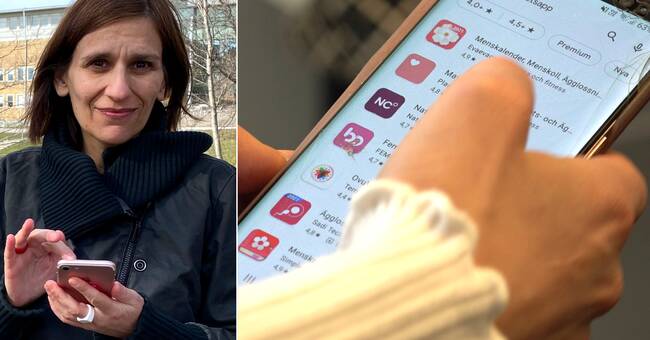Personal information is a hot commodity online and is used, among other things, to provide targeted advertisements.
Studies have shown how, for example, training apps collected sensitive data, even when they were not active.
But it does not stop there.
Mobile games aimed at children, dating apps and other categories also collect, sometimes sensitive information from users and resell it.
And now also fertility apps, which women use when trying to conceive.
- It is very sensitive and intimate information that is shared with third parties without us knowing about it, says Teresa Almeida, senior lecturer at Umeå University.
Does not comply with the requirements of the GDPR
Together with Maryam Mehrnezhad at Newcastle University, she has analyzed privacy notices and data tracking methods on 30 fertility apps - all for free and highly listed in a Google Play Store search.
The majority do not comply with the requirements of the Data Protection Regulation, GDPR.
The apps enabled an average of 3.8 tracking programs immediately after they were installed, even if the user did not approve the privacy notices.
- Half of the 30 apps we looked at have over a million downloads.
Every day more people download them.
So there are many millions of users who enter information that is then shared without their knowledge, says Teresa Almeida, senior lecturer at Umeå University.
Is it scary?
- Yes I think so.
It is important that technology in the future is designed in a transparent way, so that we know what we are accepting of and that it does not involve harm in any way.
Hear more about the risks in the clip.

